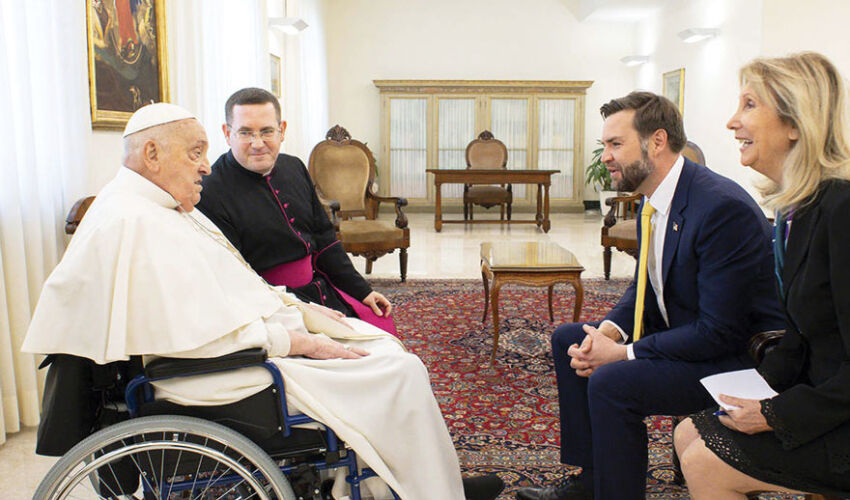
As we mourn the death of Pope Francis, we hope that after Easter Sunday, even the smallest acts of kindness will bear fruit beyond our imagination. Remember how, for five thousand hungry people, the disciples could only find five loaves and a couple of fish. But it was enough to feed them all – with the blessing of the Lord who sends the harvest.
Our world is plagued by poverty and violence (and these problems seem insoluble) just as the post-war world order is about to collapse. Christian charities play an admirable role in alleviating this suffering – Catholic Relief Services (CRS), World Vision, Samaritan’s Purse, and Jesuit Refugee Services (JRS) come to mind, among others. When so many people have no hope for the future, the work of these organizations in the U.S. and around the world is fundamental to our faith.
This role will become even more important in the coming years as economic majors cut aid budgets to foreign countries, which will do much harm to defenseless people – each made in the image of God. Since January, more than 68,000 adults and more than 142,000 children have already died due to America’s near freeze on foreign aid funding and planning, according to Boston University’s new digital initiative.
Judaism and Islam also claim that giving to charity is necessary for the lives of believers, it cannot be abandoned. The English word charity comes from the Latin caritas, meaning “love”. In this sense, charity expresses the fundamental basis of human dignity: the ability to give and the ability to receive a gift without shame.
Yes, sometimes helping can be patronizing and demeaning, perpetuating a culture of dependency in people. But that’s not how most charitable organizations work. On the contrary, they realize that the most defenseless among us witness to the often forgotten aspects of human dignity: resilience, solidarity, mutual aid, faith in God, trust in one another, gratitude. Jesus says that whoever reaches out to “one of the least of these” is giving to him.
To turn away from the poorest is to turn away from God. Above all, help sustains family life, especially women and children, whom it is unthinkable to abandon. Nikolai Berdyaev, a Russian existentialist philosopher, wrote: “Bread for me is a material question, bread for another is a spiritual question.” For Christians, the supreme act of giving is demonstrated by Christ shedding his blood on the cross. For all of us, believers or not, charity is the lifeblood that circulates in the body of society, nourishing life with its goodness.
Against this backdrop, recent reports by Reuters and Bloomberg, as well as the New York Times and Financial Times, that the U.S. government may impose new restrictions on charitable giving are deeply troubling. The ability of charitable organizations and foundations to operate and deliver aid unimpeded in the U.S. and around the world is important not only to those who receive that aid, but also to those who give it. A society where philanthropy is deliberately restricted condemns itself to poverty – financial and moral.
Pope Francis dedicated his life to serving the poor and fighting injustice. It is worth reflecting on his last Easter address, “To the City and the World” (“Urbi et Orbi”): “I call on all those who hold responsible political positions in our world not to succumb to the logic of fear, which leads only to isolation from others, but to use the resources available to help those in need, to fight hunger and to encourage initiatives that promote development.”
Hope, faith and charity are fundamental values of Christianity. While hope has all but dried up for many of us this Easter, our faith remains strong, as does our shared commitment to charity.
Timothy Radcliffe,
the first Englishman to be elected Master of the worldwide
Dominican Order in its 800-year history;
elevated to Cardinal by Pope Francis on December 9, 2024.
© Project Syndicate, 2025.
www.project-syndicate.org

